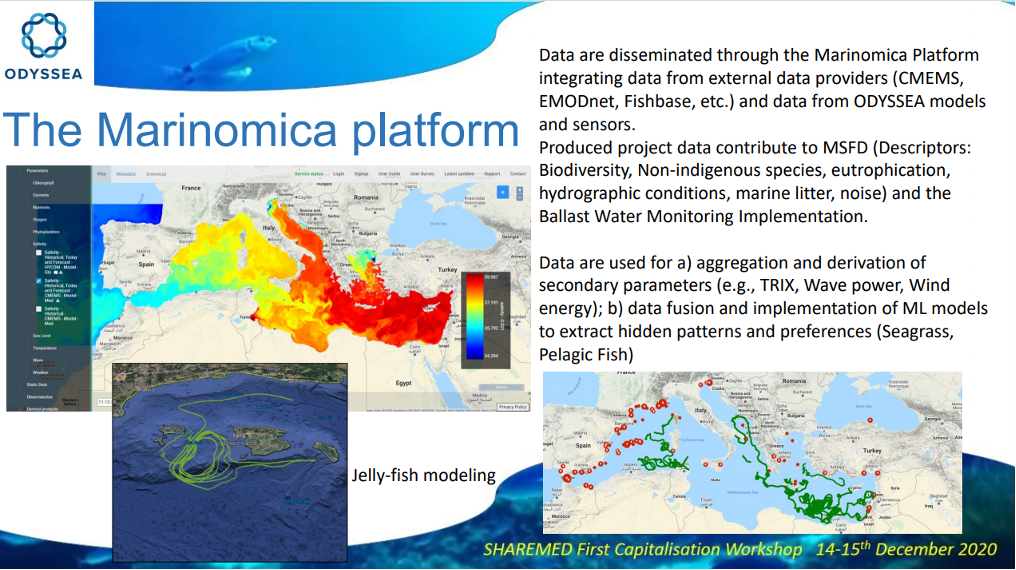The EU-funded ODYSSSEA project’s coordinator, Prof. Georgios Sylaios of the Democritus University of Thrace (DUTH) presented ODYSSEA at the 1st SHAREMED Capitalisation workshop webinar, titled “Designing the future system of observing systems to assess and address threats to the Mediterranean marine ecosystem – State-of-the-art, needs and future directions”, held online on 14-15 December 2020.
The ODYSSEA team presented the project and how it contributes to observing the marine environment and to tackling the main environmental threats to the Mediterranean.
ODYSSEA’s main message at the event is that it is “a research project to create novel knowledge, services and products for the Mediterranean with a bottom-up approach (from local/regional to broad and general) to fulfill end-user needs at diverse marine and maritime sectors,” Sylaios said.

Sylaios presented the parameters measured and environmental threats being studied through the nine ODYSSEA observatories across the Mediterranean basin, and summarised the methods and technologies involved.
“ODYSSEA data are free and open and are transferred to the CMEMS InSitu TAC. ODYSSEA considers that we need to maximize the involvement of local/regional players and integrate all systems at national level. Moreover, better coordination is needed among NOOS and EOOS at national and supranational level,” Sylaios told participants.
Organisers haled the event as “very successful”, noting that over 200 virtual participants were in attendance.
“The specific goal of the workshop is to define and test the implementation of a transnational and multi-level system of observing systems, able to assess and address environmental threats in the Mediterranean Sea and along its coasts,” while bringing together leading experts and representatives of relevant major international projects and initiatives, the organisers said.
Further aims of the event were to (1) share knowledge and expertise required to design a transnational joint observing system of systems to address environmental threats and pollution in the Mediterranean, and (2) establish new and further consolidate existing collaborations to address common challenges.
“This is fundamental to synergise efforts and engage in the capitalisation of existing initiatives, arrangements and ongoing activities for joint planning, co-design of fit for purpose observations and their integration into common assessments with effective governance frameworks,” the organisers said.
Other organisations present included ANDROMEDA, CERTO, CoCLIME, Co-Evolve4BG, COMMON SENSE, EUROSEA, HiSEA, IMARDIS, Interreg Adrion Cluster #2, INVALIS, JERICO-Ri, M3-HABs, MED4EBM, MED OSMoSIS, PLASTICBUSTERS MPAs, RAGES, SICOMARplus, and SMS.
SHAREMED – Sharing and Enhancing Capabilities to Address Environmental Threats in the Mediterranean Sea – is a project of the Interreg Med, whose main objective is to promote sustainable growth in the Mediterranean region by fostering innovative concepts and practices and a reasonable use of resources and by supporting social integration through an integrated an territorially based cooperation approach.

